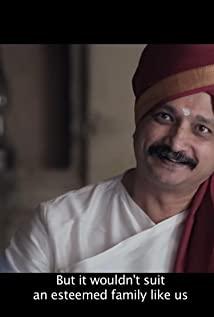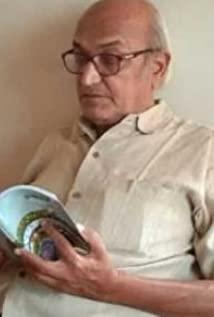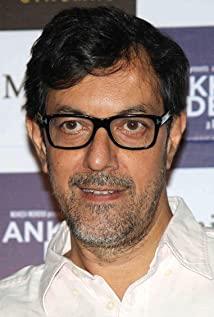The 2019 domestic film "Manslaughter" has received numerous acclaim. The film is a remake of the 2015 Indian film "Manslaughter Hiding from Heaven". If you don't look at the latter, the former is really remarkable. Many people know the latter because of the former, and the original version is simply too good to be true, and the remake is completely different.
"Manslaughter to hide the sky" is not only a good movie, but also an extremely important movie. Ever since I came into contact with and studied film, I found that film is an art that is closest to politics. Based on their own aesthetics, values, and views and expectations on people and society, the directors present their familiar culture to the people in the theater. In 1895, the Lumiere brothers in France shot "Factory Gate" through a modified Edison moving film projector. This technological change enlarges the moving image through projection so that more people can watch it at the same time. The film was screened in the "Indian Salon" of the Grand Cafe at No. 14 Boulerard des Capncines in Paris, France, and it is said that the aristocratic women sitting in the front row fainted because the images were too real. By now, people are already familiar with watching movies. Spectators who are strangers to each other attentively accept the life revealed to them by the director - this life belongs to one's privacy, this kind of viewing is a kind of voyeurism, this technology is originally a phantom and montage-style blindfolding technique, But both are rationalized by the film, with an authority that makes the audience unconditionally and pilgrimage into it. Therefore, the entertainment of the film is only a pedagogical shell, which, like the drama, bears a clear political significance.
1. Authoritarian India
The story is actually very simple. Under the existing legal system that protects the upper classes, in order to protect the daughter who was raped by the rich second generation, Vijay, the people at the bottom, used the method he learned from the movies to make up a big lie and escaped legal questioning. responsibility, defending his family.
There are few characters in the film, and the representation is very strong. We can smell the strong class culture of India. This is often seen in a number of famous Indian movies in recent years, such as "Three Silly Bollywood" and "Wrestle, Dad" and so on. The insatiable greedy policeman Gotud who bullies vulnerable people in this film is the embodiment of this authoritarian India. He did not believe that the Vijay family had nothing to do with the disappearance of Fu Erdai, and tortured them. Gottude symbolizes the tyranny of absolutism that pervasively oppresses the interests of the people at the bottom. On the surface, the police station that exists to maintain order is actually just a decoration that an autocratic country has to add when stepping into modern civilization. Class and inequality in India is a long-standing state, which Marx mentioned in the preface to Critique of Political Economy, which is related to a special mode of production in Eastern history, namely the "Asian mode of production". For: the state takes the rural commune as the basic social organization; the state manages the rural commune in social life; the state directs the rural commune to carry out the construction of large-scale projects. An important feature of the Asian mode of production is that the land is communally owned and does not allow free transfer. In addition to India, China before the Western Zhou Dynasty was also a typical example. Marx believed that under the Asian mode of production, the state was different from that of the West. The state was not the product of irreconcilable class contradictions, but was born as a manager to meet the needs of society. Eastern countries generally have authoritarian characteristics, and it is difficult for the ideas of democracy and freedom to arise in the East. During the Spring and Autumn Period and the Warring States Period, China broke through the Asian mode of production. Some measures such as "abolishing feudalism, opening up the borders" and "well-field system" established private ownership of land, and the free sale and purchase of land was recognized. But despotism has survived, with far-reaching consequences. Marx's understanding of China's "absoluteism" has directly affected the course of our country's history and revolution, needless to say. But the authoritarianism of China and India is actually different, which will be explained in detail in the third part of this article.
It is heartening that Vijay has brought down this impregnable despotism. With his ingenuity, he not only escaped the punishment of the existing law, but also used the boiling public opinion to punish the high-ranking officials. The ingenious design of the film and the dangers of life and death are exciting enough, but no one expected that when the little daughter was finally pried open by Gotude's torture and told the "truth", the truth is still only Vijay. The elaborate setting - in the rainstorm, the land was dug up, but it was not the corpse of the rich second generation, but a dog. Land is an obscure symbol in the film. Corresponding to Marx's "Asian mode of production" theory, land is communally owned in India, and public ownership of land is the source of Indian absolutism. The image of the dog that was excavated in the ground was exactly the humble and broken image of the lower class that Vijay tried his best to show everyone. At the same time, the ending of the film is even more amazing. In the victory of public opinion, Vijay walked out of the police station firmly. The thresholds behind him were like steps of an altar. This scene implies that we, the corpse of the second generation of rich, are buried in the land of this splendid police station. Down. Here, the land will eventually become the burial place of the upper class. It's a novel metaphor, and an exhilarating hope. It's not like it's real, it only exists in the pen-made creation of the movie. This land that makes people poor is the only objective and the only reality in the mundane and sad world, burying both the poor and the rich, silently.
2. Mystical India
One aspect of the film that is easily overlooked is the mysticism of India. It is not only an allegorical structure in structure, but also inlaid with the mysterious attributes of Indian society in its plot. As we all know, India is a polytheistic country, and the gods get along very poorly. India's culture characterized by beliefs has lasted for such a long time, until in recent years, the release of some Indian films, such as "My God" and "Little Lolita's Uncle Monkey God", made people feel that the Indian society has a lot to do with itself. The ability to reflect on culture has formed an unstoppable trend of thought, and the filmmaker "Uncle Mi" Aamir Khan has become a world-renowned Indian film figure . And it's more about changing India's power - and it's all about politics. These films starring him have made a comprehensive analysis of India's beliefs, culture, gender concepts, wealth gap, education, war and other issues. It can be said that if it is difficult for us to explore India from other materials today, Bollywood has is a more valuable prism of Indian society.
India is indeed a magical country. Indians have both poverty and high IQ. Indians can always be seen in any smart computing industry. Their English speaking attitude is also so confident. Generally speaking, the concept of backward countries is also backward, but India's service spirit is well-known far and wide. As far as movies go, I don't see any such thing as "the economic base determines the superstructure" either. Indian cinema is really great. It is impossible to describe how inexhaustible spiritual energy has been brought to India by religion, poetry and history. There is an easily overlooked detail in this film: the core of Vijay's carefully crafted lies is the sermon around Gaoma Yande. Who is Gaoma Yande, I really don't know, but from the movie, he should be an eminent monk. On the day of his sermon, Indians came from all over to hear the sermon, and Vijay found people who could testify for their family—from drivers to vendors to hotel waiters—they inadvertently gave false testimony because of The incident of Gaoma Yande's sermons deeply penetrated into people's minds. Vijay used this indelible event in people's minds to convince people of his claims. In order to train his family to cope well in front of the police, Vijay bought DVDs of lecturing and watched them repeatedly with his family, so that he knew them by heart and was ready to answer any questions the police might ask. Interestingly, the sermons of the eminent monks, after all, conflicted a little with Vijay's practice; using sermons, which is absolutely sacred in Indian culture, caused others to give false testimony and helped Vijay break the mysticism. India, too, finally triumphed over the altar of mysticism—the judicial system.
Secondly, the method that Vijay uses to control the memory of witnesses and achieve the effect of testifying, that is, to repeat a certain date continuously, to strengthen people's impression of their "alibi", and in the final analysis, it is also a sermon. Gaoma Yande repeatedly explained the scriptures to the effect of fooling everyone, while Vijay repeated the false alibi to the effect of fooling the law. Of course, many of the ways he uses are inspired by movies. Here, cinema as a modern craft presents a unique challenge to ancient Indian belief systems and entrenched social hierarchies. At the end of the film, Vijay and the senior officials meet on the hillside, and the film creates a sacred mood, Vijay said: "I'm just a fourth-grade dropout, my family is everything I have, but there are One day, an uninvited guest wanted to destroy all of this, so a tragedy happened. I want to say sorry countless times for causing you pain, but this is the end. I will do anything for my family. At that moment, I can't tell right Wrong." There is an ambiguous confession here, and the very Western concept of "family" is also introduced. In India, where Western thought and Internet civilization have poured in, the civilization of worshipping gods has begun to show signs of decline. But it must be a long process. For a nation whose fundamental thinking mode is poetry, the disappearance of reverence and disenchantment cannot be brought about by industrial civilization. Because poetic thinking is completely different from pragmatism, it is not linear, but closed. It has always been a big deal, and it likes sadness, self-deprecation and romance. Indian cinema, like the rest of the country, is born out of Indian philosophy and begins with aimless imagination. In deep contemplation, spirituality meets the world, and spirituality can escape from the world.
3. Comparing India and China
The domestic version of the remake is slightly inferior in terms of plot and technique. The flaw is that the domestic version locates the environment in the Thai Chinese life circle, and has no cultural or spiritual foundation; secondly, the land burying the dog and the trial image of the perpetrators Gone, and replaced by the vaguely "buried surrogate lamb", which is obviously neither a Thai nor a Chinese religious element, borrowed and inappropriate; in the end, the ending is weak. The domestic version of Vijay turned himself in and was imprisoned because he was "induced" by a god in a temple in Thailand. God" for the same reason). Here begins to answer the question raised in the first part, why it is wrong to say that Marx's theory of the "Asian mode of production" treats India and China as equals. In "Manslaughter to hide the sky", Vijay's final victory was the defeat of Indian autocracy, but it was not only determined by the mode of production. That's right, in India and feudal China, the land is communally owned, and the people are reduced to cool laborers, and the autocracy is powerful. But India's autocracy was not strong from the beginning, but was subject to the eldership system rooted in the hearts of the people. The tyrannical ruler is the chief executive who can see, but even the chief is under the supervision of gods, retribution and the afterlife. Therefore, the Indian government is more like a despotism at the purely material level, while the government of feudal China not only undertakes the management tasks at the material level, but also takes over the tasks of restraint at the spiritual level. It is both a human being and a god, an authority and a destination. That's why Francis Fukuyama called ancient China "excellent authoritarianism," a form that resembled a patriarchal system rather than a political system. Under authoritarian governments, thinking is unnecessary and obedient eats. This is why, in the domestic version, Vijay must finally come to the state judicial punishment - prison, in order to be able to reconcile with himself; and the so-called images of the Thai gods that caused him to surrender are just to prove that "attribution to the borrowed authority reflected in the values of the nation. Similarly, this is why, the Indian version of Vijay is able to transcend the "justice" claimed by the country's laws, and only by virtue of the monk-style understanding and firm belief in the essence of "goodness", it has risen to the top and broke the law in one fell swoop A tyrannical victory stands on an equal footing with the powerful in spirit. If there is still room for improvement in this film, I think it is because the comparison of Eastern and Western cultures is not deep enough, such as the relationship between the "family" believed in by Vijay and Indian cultural beliefs, tragedy and the invasion of modern civilization relationship, etc.
Before his death, Mr. Ji Xianlin predicted that the pattern of the world in the 21st century will be determined by the exchanges between China and India. I thought so. It is also an ancient civilization and has the same ancient and authoritative system. In order to counteract the rise of the Western world after the 19th century, the cultural exchange between China and India is very important. It is a pity that today's thinking about the two countries only stays at the level of economic development. If China is a model for the development and growth of pragmatism in the Eastern world, it is necessary to obtain comfort compensation from the deep and quiet spiritual world of India. At least for now, even if there is a higher level of well-off, it is difficult to make the charm of Indian movies. It is a consensus. Where is the root cause? Comparing the two films of the same origin is clear at a glance. Indian absolutism continues in a certain way, but the hearts of Indians belong to a nature outside this world. China's old authoritarianism is indeed worthy of the title of "food and clothing parents", but a person who is fed is not worthy of envy, a person who can think and even suffer from poverty because of thinking is independent. When we laugh at Indians for drinking unclean Ganges water, we don't even realize that we don't even have a shared spiritual home. From the perspective of mental opening, well-off or not may not be the crux of the issue.
View more about Drishyam reviews











